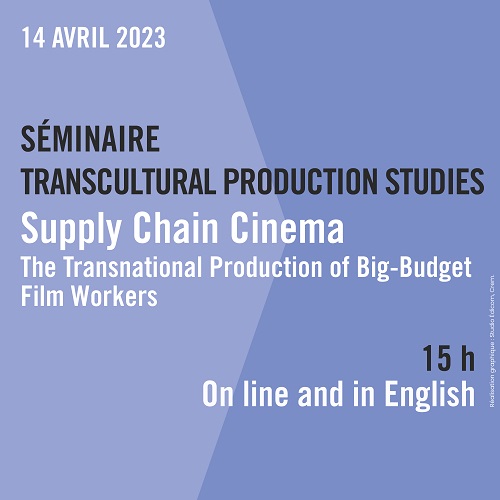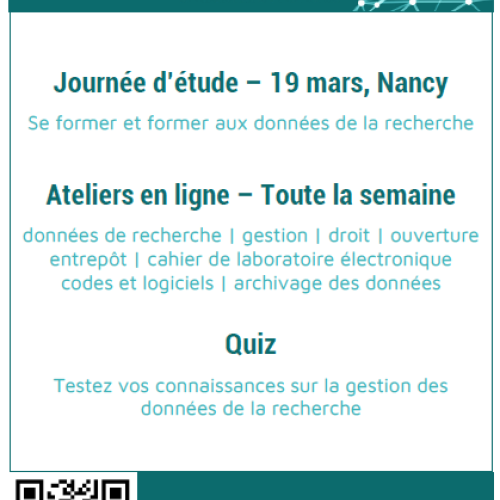Supply Chain Cinema: The Transnational Production of Big-Budget Film Workers

Séminaire dirigé par Nolwenn Mingant (3LAM, Université d’Angers)
Equipe organisatrice :
Joël Augros (Clare/Artes, Université Bordeaux Montaigne)
Bérénice Bonhomme (Lara-Seppia, Université de Toulouse-Jean Jaurès)
Patricia Caillé (Crem, Université de Strasbourg)
Katalin Pór (2L2S, Université de Lorraine)
Christel Taillibert (Lirces, Université Côte d’Azur)
Cecilia Tirtaine (Crini, Université de Nantes)
Ana Vinuela (Ircav, Université Sorbonne Nouvelle-Paris 3)
An increasing amount of big budget, offshored film production currently routes through the United Arab Emirates, often without the ordinary viewer even noticing. Bollywood, Chinese and Hollywood movies (including Star Wars: The Force Awakens, Mission: Impossible – Fallout and Dune) are now regularly, if partially, made there.
In many ways, film offshoring first arose in the UAE thanks to strong provision from already dominant sectors. In particular, these were and still are: logistics (for managing the flows of equipment and personnel required for principal photography), construction (of both sets and specialized work environments like studios, as well as other necessary infrastructures, physical and digital), and tourism (proffering a wealth of suitable hotels for accommodating visiting crews). It often goes unacknowledged the extent to which these factors, essential for the effortless functioning of a film’s manufacturing journey, figure in the selection of production sites. In addition, the UAE (depending on which emirate) is either tax free or offers highly competitive 30% rebates on eligible production spend.
To meet the needs of such productions, a particular worker subjectivity is being specifically crafted in the UAE, one adapted to transnationalized conventions and languages of filmmaking that are seen as crucial for lubricating seamless flows between geographically and culturally atomized sites. Manifest in policies like the Abu Dhabi Economic Vision 2030, the UAE hopes to top-down prepare larger numbers of these sorts of creative workers and, more pervasively to greatly augment its creative and knowledge economies. To aid this mission, the UAE has welcomed branch campuses of multiple foreign universities to its shores, providing substantial financial support for the likes of NYU Abu Dhabi. The required aptitudes for contributing to split location film productions take shape less through hands-on training, perhaps, than by fostering what Aihwa Ong dubs “graduated citizenship.” Graduated citizenship is transcultural fluency par excellence. It encompasses an elite and mobile efficacy with the belief systems, modes of comportment, linguistic dexterity, hierarchized diversity, entrepreneurship, and notions of liberal creativity essential for effortlessly fitting in when big budget cinema charts its course through any given site.
It is noteworthy too that both the transnational media production districts and the overseas branch campuses are sequestered within the UAE’s proliferating archipelago of free zones. These are transculturally-tailored quarters that stand aloof from the legislation governing the country proper by allowing for foreign investment and exceptional rules blocking unionization while extending freedom of expression.
Like the majority of those employed on arriving international film productions, the bulk of the students enrolled in these universities are migrants, many hoping that their qualifications will allow them to stay on after graduation. They will do so not as citizens (which is all but impossible), but as workers on highly precarious temporary contracts whose termination threatens their very tenure in the country, rendering them indebted to sponsors and employers, and thus distinctly unlikely to question or disrupt workplace exploitation. These conditions, too, become habituated as central to the transculturation process and its competitive advantage amidst many such sites that vie for offshore film business.
Biography
Kay Dickinson works in the University of Glasgow Film and Television Studies department and is the convenor for MA Creative Arts and Industries. She is the author of Arab Cinema Travels: Transnational Syria, Palestine, Dubai and Beyond (BFI Publishing, 2016) and Arab Film and Video Manifestos: Forty-Five Years of the Moving Image Amid Revolution (Palgrave, 2018). She has published on various aspects of transcultural film production in peer-reviewed journals and award-winning anthologies and is currently completing a monograph entitled Supply Chain Cinema: The Transnational Production of Big-Budget Film Workers (BFI Publishing, 2023).
Pour recevoir le lien du séminaire, merci de vous inscrire en cliquant sur le lien suivant :
https://forms.gle/GHrCDtpZDpmCzgwV9.
Programme du séminaire TPS – Saison 2022-2023 :
https://tps.hypotheses.org/category/digital-seminar
À propos du projet :
48.696175697114, 6.1765480187502




